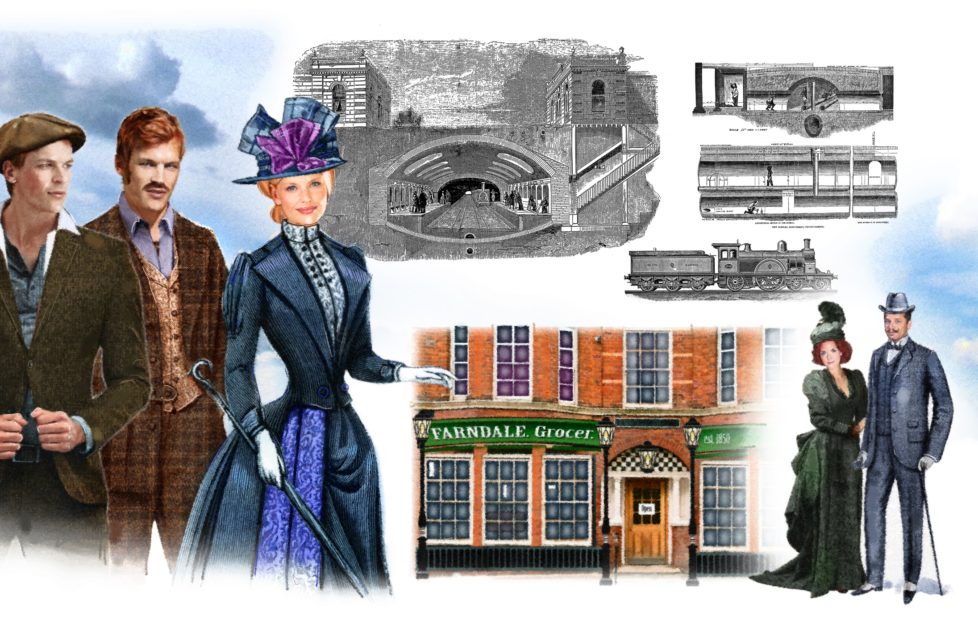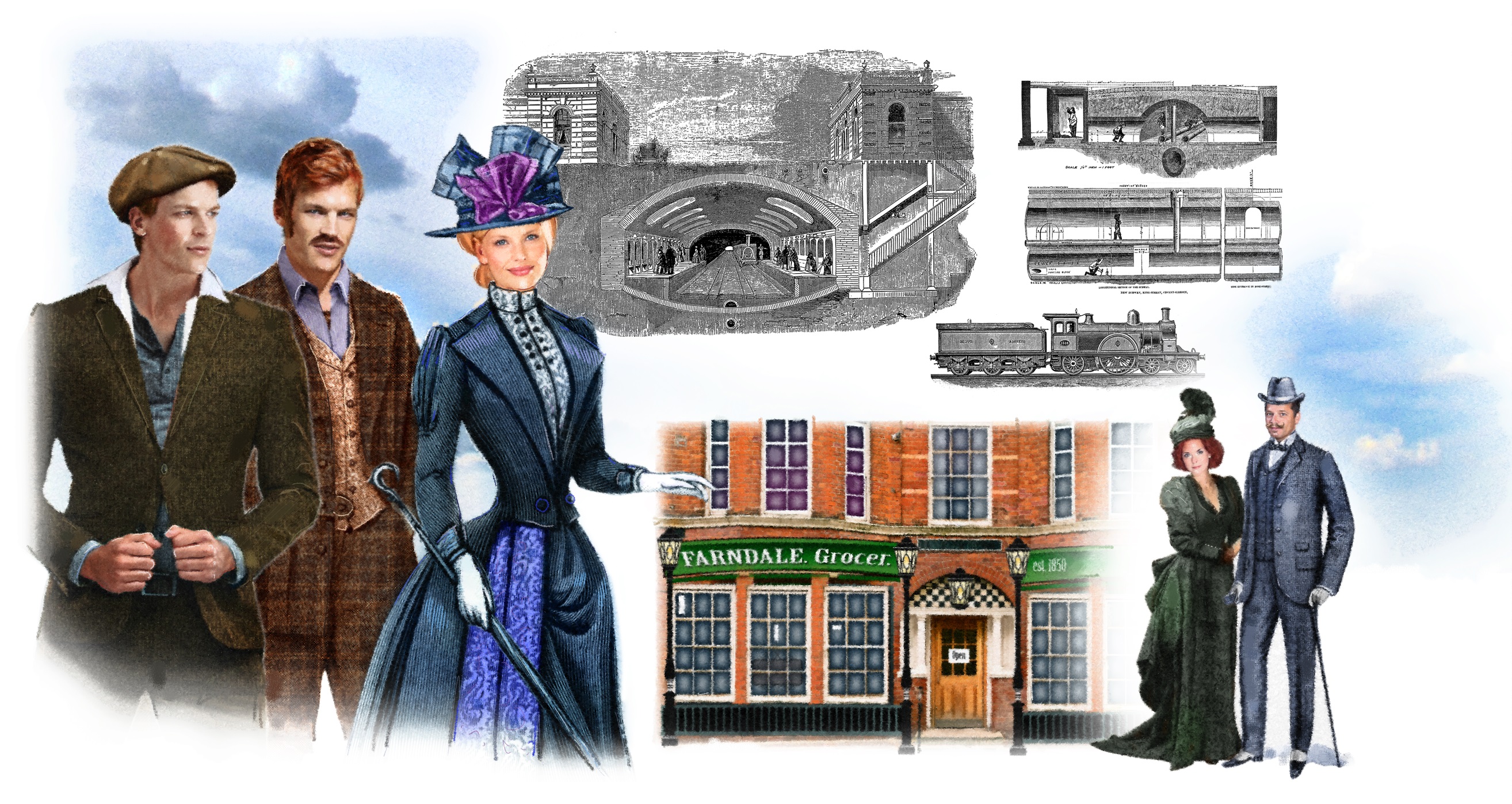Under The Streets Of London – Episode 44

Under The Streets Of London
« Previous Post- 42. Under The Streets Of London – Episode 41
- 43. Under The Streets Of London – Episode 42
- 44. Under The Streets Of London – Episode 43
- 45. Under The Streets Of London – Episode 44
- 46. Under The Streets Of London – Episode 45
- 47. Under The Streets Of London – Episode 46
- 48. Under The Streets Of London – Episode 47
Henry Waters kicked angrily at a timber lying against the side of the trench and yelped in pain. Lord, that wood was hard. This fact, more than the sting in his foot, made him angrier than ever.
He was meant to be an engineer – he should know how hard wood was. But the truth was that he had no skill at engineering and no idea how to acquire any. He felt as if he was in this precious apprenticeship by the skin of his teeth and that at any minute he would be found out as a fraud.
Only the other day John Fowler, the great man whose vision this was, had been quizzing him about load bearing and he hadn’t had a clue. Thankfully that grocer’s lad, young Bertie, had been hanging hopefully around, as he so often was, and had answered the question before Henry had been forced to admit his ignorance.
Mr Fowler had been so distracted by him that Henry had been able to make good his escape, but next time he was unlikely to be so lucky.
And next time was horribly close. Henry glanced up the line but so far, thankfully, there was no sign of his boss.
It was all Eliza’s fault, Henry thought grumpily. It felt untrue, even to him, but somehow it was easier to blame her. He’d never forget the pain in his heart when he heard her call out the name of that Irish navvy.
He’d known immediately that he’d be a fool to press his suit with Eliza. He had realised long before that she wasn’t in love with him, but had hoped that would grow with time. There was no way, though, that he was marrying a girl who was in love with someone else!
She was distraught when he told her, which was quite gratifying, actually.
“Eliza, I can see where your heart lies, and it is not with me. I do not blame you, but I cannot marry you.” He offered her his handkerchief to mop up her mortified tears. “Of course, we can still be friends, just as we always have been.”
That was true. They had spoken since, many times, and it hadn’t been as awkward as he’d feared. In some ways it was a relief – Henry wasn’t sure he was ready for marriage yet, after all. He was young, on his way up in life.
At least, he would be, if he wasn’t struggling with this whole wretched engineering business. His father had been so keen! Henry could still remember him bounding into the room, in a way most unlike his usual sober self, with the letter confirming the apprenticeship.
“John Fowler, Henry!” he’d all but sung at his son. “Haven’t you always admired him? And now you’ll be working for him.”
It was, in reality, Henry’s father who had always admired John Fowler. He’d have loved to be an engineer himself, but had had to settle for accountancy. He was hugely proud of Henry for making what he saw as a giant step forward for the family.
Henry desperately wanted to live up to his father’s expectations, but his mind just didn’t seem to work the right way. He enjoyed the customer side of the business.
He loved talking to the newspapers and charming the sponsors, keeping the current ones happy and recruiting new. He was good at it, too. He could talk engineering with the best of them; it was just the nuts and bolts of it that he struggled with.
But the nuts and bolts were vital.
He shuddered and looked up at the gaping opening above his head. They were finally closing over the tunnel past little Bertie’s shop, but they’d hit a section where the timbers had had to be laid wider than usual because of some tricky rocks, or some such. Now John Fowler had set him the task of reconfiguring the timbers.
This, Henry was certain, was where his apprenticeship ended. He could not smooth this over, nor duck it. He was going to have to admit that he had no idea what to do, or he could end up being personally responsible for the collapse of the first-ever underground railway, and possibly killing hundreds of people in the process!
He looked hopefully from the drawings in his hand to the timbers at his side, but inspiration did not strike.





